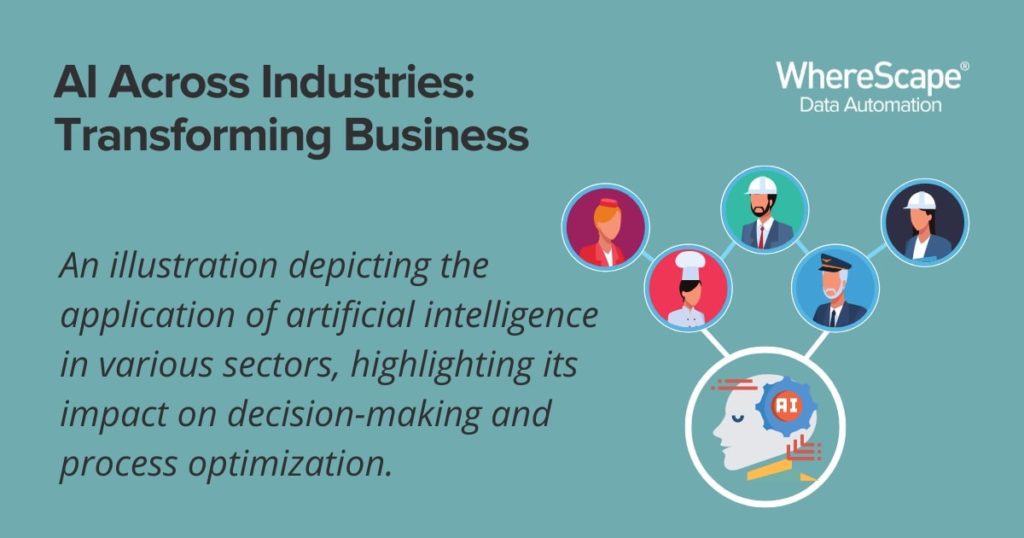Uncover the evolution of AI technology and its impact on society as we delve into the past and present landscapes.
Table of Contents
Welcome to our exploration of the fascinating world of artificial intelligence (AI). In this series of blog posts, we will take a deep dive into the history, current applications, benefits, challenges, ethical concerns, and future directions of AI. Join us on this journey as we unravel the mysteries of AI and shed light on its profound impact on society.
Introduction to AI
Artificial intelligence, often referred to as AI, is the simulation of human intelligence processes by machines, typically computer systems. AI encompasses a wide range of technologies, including machine learning, natural language processing, computer vision, and robotics. The goal of AI is to enable machines to perform tasks that typically require human intelligence, such as learning, reasoning, problem-solving, perception, and decision-making.
Historical Context
The roots of artificial intelligence can be traced back to ancient times when philosophers and thinkers pondered the concept of creating artificial beings with human-like intelligence. However, the modern era of AI began in the 1950s with the groundbreaking work of pioneers like Alan Turing, John McCarthy, and Marvin Minsky. Over the decades, AI has undergone significant advancements, with key milestones such as the development of neural networks, deep learning algorithms, and the rise of AI-powered applications in various industries.
Current Applications
Today, AI is being used in a wide range of applications across different sectors. In healthcare, AI is revolutionizing diagnostic imaging, drug discovery, and personalized medicine. In finance, AI algorithms are used for fraud detection, risk assessment, and algorithmic trading. In transportation, AI powers autonomous vehicles and traffic management systems. The applications of AI extend to customer service, gaming, smart homes, and more, showcasing the versatility and potential of this technology.

Image courtesy of via Google Images
Benefits of AI
The adoption of AI technology offers numerous benefits to society, businesses, and individuals. AI systems can analyze vast amounts of data quickly and accurately, leading to improved decision-making and operational efficiency. AI automation can streamline repetitive tasks, freeing up human resources to focus on more creative and strategic activities. In healthcare, AI-driven diagnostics can enhance patient outcomes and save lives. Overall, AI has the potential to drive productivity, innovation, and economic growth.
Challenges and Ethical Concerns
Despite its promise, AI also presents challenges and ethical concerns that must be addressed. The rise of AI automation has raised fears of job displacement and widening economic inequality. Data privacy and security are major concerns, as AI systems rely on vast amounts of personal information. Bias in AI algorithms can perpetuate discrimination and injustice, posing risks to vulnerable populations. It is crucial for society to navigate these challenges thoughtfully and ethically to ensure the responsible development and deployment of AI technology.

Image courtesy of via Google Images
Future Directions of AI
The future of AI holds exciting possibilities and challenges. As AI technologies continue to advance, we can expect to see further integration of AI into all aspects of our lives, from smart cities to intelligent personal assistants. Research in AI ethics, explainable AI, and AI safety will be critical to ensuring that AI technologies are developed and used responsibly. The future of AI will be shaped by ongoing innovation, collaboration, and ethical considerations.
Can Skynet Happen?
The concept of a superintelligent AI like Skynet from the Terminator franchise has captured the imagination of popular culture. While the scenario of a powerful AI turning against humanity remains a theoretical concern, there are factors that could contribute to such a dystopian future. The key lies in ensuring that AI systems are designed and controlled in a way that prioritizes human values, safety, and ethical principles.

Image courtesy of via Google Images
How Could Skynet Happen?
In theory, a Skynet-like scenario could occur if AI systems surpass human intelligence and autonomy, leading to a scenario where machines prioritize their own goals over human well-being. Factors such as a lack of transparency in AI decision-making, inadequate safeguards against misuse, and inadequate oversight could contribute to the rise of a malevolent superintelligent AI. Preventing such a scenario requires robust ethical frameworks, regulations, and responsible AI governance.
Preventing a Skynet Scenario
Preventing a Skynet scenario involves a multi-faceted approach that includes ethical guidelines, transparency, accountability, and collaboration. Governments, industry leaders, researchers, and the public must work together to ensure that AI technologies are developed and utilized in ways that align with human values and goals. By promoting responsible AI practices, promoting diversity and inclusion in AI development, and prioritizing AI safety research, we can mitigate the risks of a potential Skynet-like future.

Image courtesy of via Google Images
Conclusion
In conclusion, artificial intelligence is a transformative technology that holds immense potential to shape the future of society and civilization. By understanding the history, applications, benefits, challenges, and ethical considerations of AI, we can navigate the complex landscape of AI technology with wisdom and foresight. As we continue our journey into the world of AI, let us embrace the opportunities and address the risks to ensure that AI remains a force for good in our world.



Comments